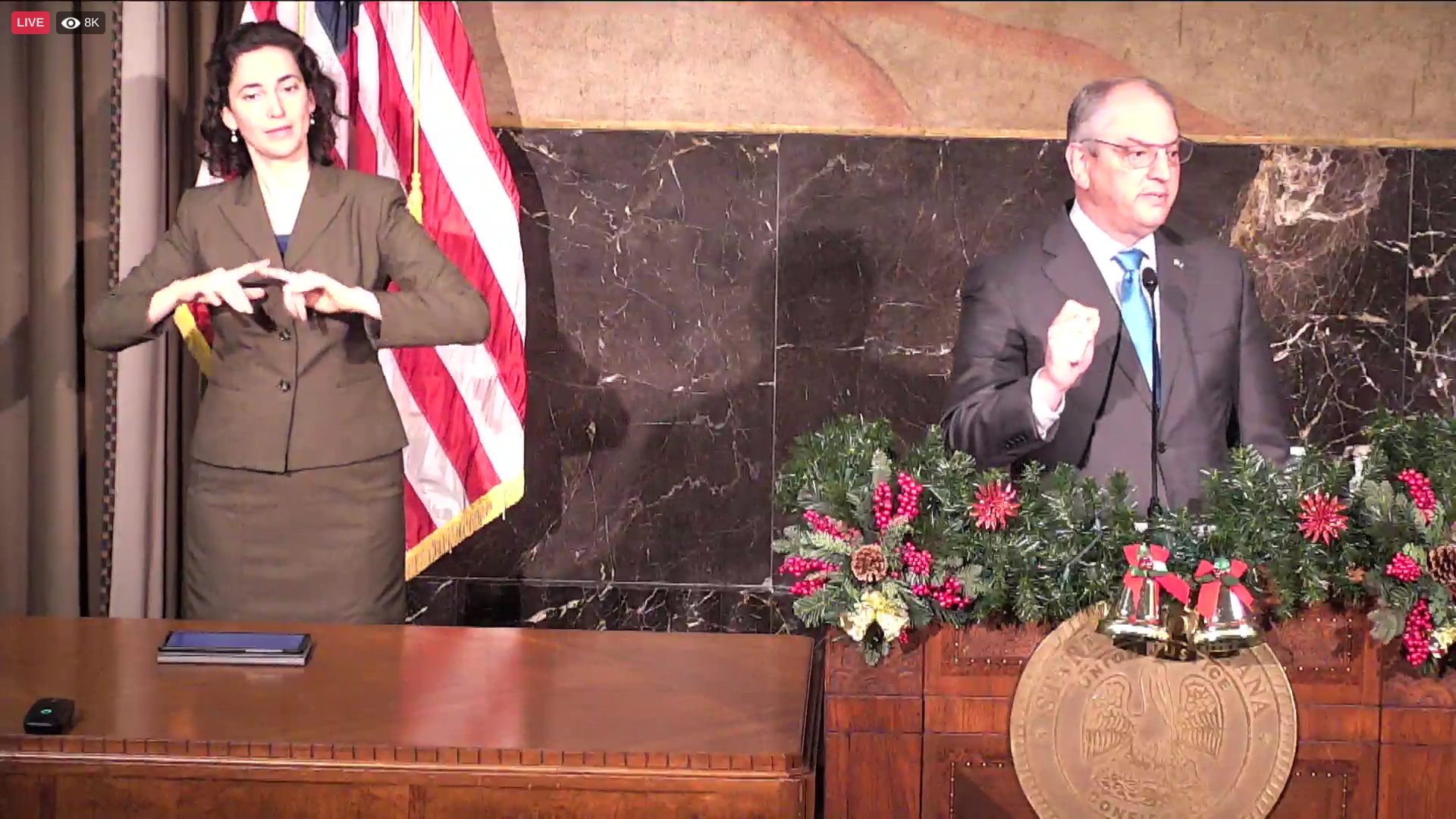
Nicholls sophomore scores career-high in loss to Alabama A&M
December 31, 2020
COVID-19 vaccine to be offered for Louisiana residents age 70 and older next week at some pharmacies
December 31, 2020Key Findings Snapshot:
- Over half (57%) of Americans say health and wellness is their top focus area, up from 51% in 2019; less than one-quarter (23%) said financial stability (down from 27% in 2019)
- More than six in 10 (61%) Americans said they were more stressed this year, more than double from only 30% in 2019
- Only 13% of people are including financial planning as a resolution in 2021 – an 11-year low
Driven by the COVID-19 pandemic, health and wellness is taking top priority for the majority of Americans in 2021, according to the annual New Year’s Resolutions Study* conducted by Allianz Life Insurance Company of North America (Allianz Life). While this may not come as a surprise given the physical and mental health challenges resulting from the pandemic, it may be putting their long-term finances at risk as far fewer people say they plan to focus on their finances in the New Year despite ongoing volatility.
With seven in 10 Americans identifying the COVID-19 pandemic as the most worrisome threat of 2020 (followed by the state of the country’s political environment at 45%), it follows that 57% said health and wellness was their top focus area for 2021 (up from 51% last year). This increased attention to health comes at the expense of financial stability, which is the top priority for less than a quarter of respondents (23%), down from 27% in 2019.
In addition to less focus on their financial stability, the study found that only 13% of respondents said they are including financial planning as a resolution for 2021, the lowest percentage since 2009.
“This has certainly been a unique year fraught with unforeseen challenges, but it is still surprising to see people even less focused on finances, particularly given high unemployment, forced early retirements, and other risks to financial security that many experienced in 2020,” said Aimee Johnson, vice president of Advanced Markets and Solutions, Allianz Life. “There’s no doubt that there is great value in improving one’s health and wellness, but now more than ever, financial health needs to remain top of mind. Poor money management can negatively affect your health because of the stress that can be caused by fretting over impacted financial plans. It does not need to be a Catch-22 though, as it is completely possible to address both personal and financial health in 2021.”
Americans feeling more stressed
Increased stress is indeed an underlying area of concern, as more than six in 10 Americans (61%) said they were more stressed this year, more than double the amount who said they felt more stressed in 2019. One area contributing to higher stress levels is the current market climate. When asked about the market conditions today, nearly a quarter (23%) of respondents said they are “terrified the market will crash and we’ll have another recession,” up from only 16% in 2019. In addition, another 25% said they are pessimistic about the markets and believe they will probably lose money in the near future. Increased market volatility was also cited as the greatest risk to retirement security, replacing 2019’s greatest risk – healthcare costs.
An increase in certain bad financial habits – likely brought on by the pandemic – could be another reason why Americans are feeling more stressed this year. More people said they are spending too much on things they don’t need (32%, up from 26% in 2019) and saving some, but not as much as they could (27%, up from 22% in 2019).
Perhaps more concerning, these bad financial habits saw the biggest increase among millennials. More than four in 10 (42%) reported spending money on things they don’t need, up from only 30% in 2019, and nearly the same amount (39%) said they are not saving as much money as they could, up from 22% last year. As a result, more than half (55%) of millennials report feeling stressed specifically about their finances, much higher than Gen X (42%) or boomer (23%) respondents.
Reasons for hope
Despite so few saying they will include financial planning in their resolutions for 2021, not all of the financial planning news is doom and gloom. More Americans (88%) expect their financial situation to improve or stay the same next year rather than get worse (12%), and more than a third (37%) said they reduced their overall spending since the start of the COVID-19 pandemic.
There is still room for improvement, as only about one-quarter (27%) of Americans said they were more likely to work with a financial professional in 2021, the same amount who were looking for more financial planning help heading into 2020.
“Although most people would understandably like to leave 2020 in the past, it’s important to take away lessons where we can, and the value of having a solid financial plan certainly applies,” said Johnson. “If 2020 taught us anything, it emphasized the idea that anything can happen, and we need to be prepared for the unexpected. Financial professionals can be a huge benefit in helping people identify risks to their finances and prepare accordingly.”
*Allianz Life Insurance Company of North America conducted an online survey, the 2020 Allianz Life New Year’s Resolutions Study, in November 2020 with a nationally representative sample of 1,209 respondents ages 18 years or older.
Feature photo by Josiah Weiss.









